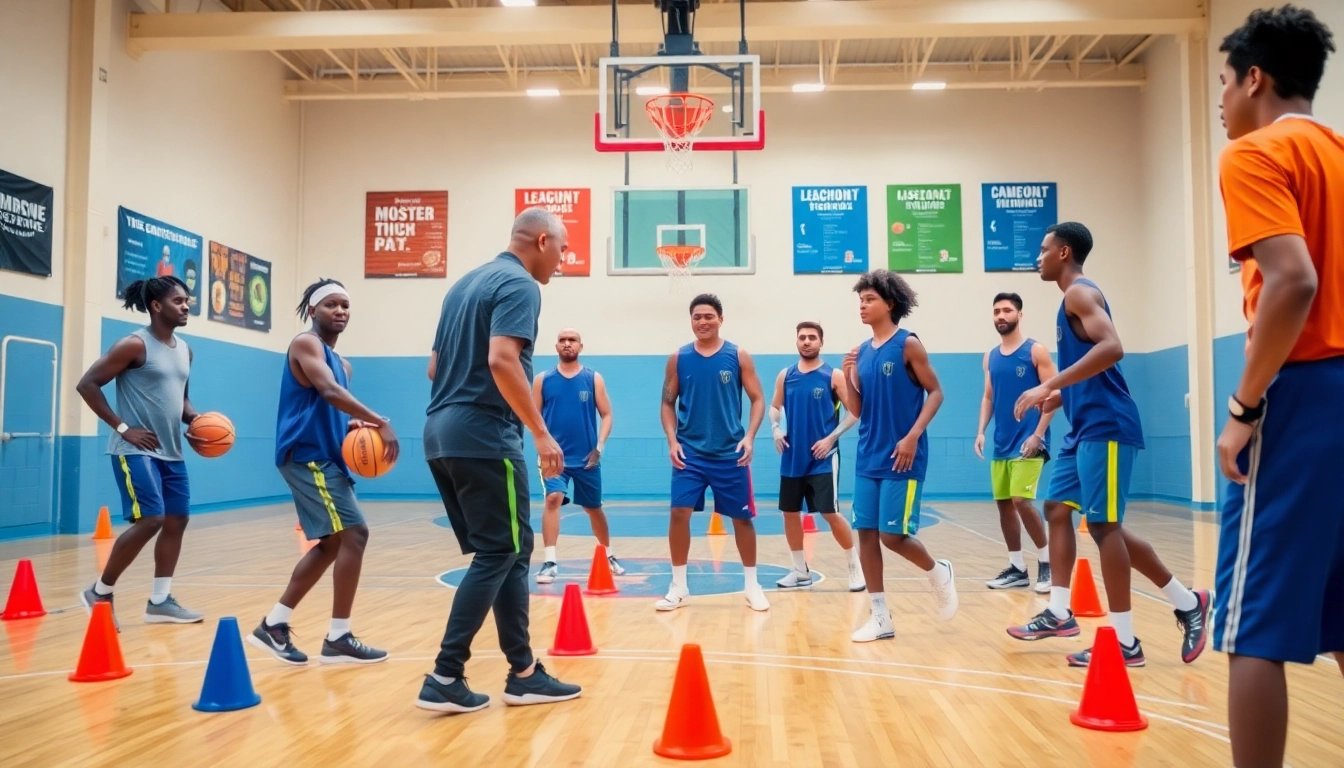Understanding Basketball Training Programs Near Me
Basketball is more than just a sport; it is a passion that can bring individuals together and foster growth both personally and athletically. For those looking to enhance their skills, finding basketball training programs near me can be the vital first step in elevating their game. Local training programs are designed to offer specialized coaching, competitive drills, and additional resources to help players improve. This article delves into the defining attributes of basketball training, articulates the benefits of enrolling in local programs, and explores the various types of training available.
Defining Basketball Training
Basketball training refers to structured practice sessions aimed at developing specific skills required to excel in the game, including dribbling, shooting, passing, and defense. These programs can vary significantly depending on the age and skill level of the participants. Training can take place in various settings, including gyms, outdoor courts, or community centers, and can be tailored for individuals, small groups, or teams. The objective is to not merely practice but rather to refine techniques, enhance physical conditioning, and instill a deeper understanding of game strategy.
Benefits of Local Training Programs
Participating in local basketball training programs offers numerous advantages, especially for players eager to improve their skills. Here are some benefits to consider:
- Access to Experienced Coaches: Many local programs feature seasoned coaches who bring a wealth of knowledge and experience to their training sessions. These professionals can provide personalized feedback and mentorship that are invaluable for skill development.
- Community and Team Building: Local basketball programs foster a sense of community. Players often build friendships and connections with teammates, which can enhance their enjoyment of the sport.
- Flexibility and Convenience: Finding a training program near your location means less travel time, making it easier for players to commit to regular practices and workout sessions.
- Competitive Environment: Many local programs host games, tournaments, and clinics that present a chance for players to test their skills against others. This competitive element can motivate players to push themselves further.
- Affordable Options: Local programs are often more affordable than attending specialized training camps, making them accessible to a wider range of athletes.
Types of Training Offered
Basketball training programs come in various forms to cater to different needs and skill levels. Here are some common types:
- Individual Training: Tailored sessions focused on particular skills or areas of improvement. These can include one-on-one sessions with a coach that concentrate on shooting techniques, footwork, and ball handling.
- Group Clinics: Small group sessions where players engage in targeted drills and competitive practice. These encourage teamwork and enhance communication on the court.
- Skills Camps: Intensive programs that often last for several days or weeks, focusing on comprehensive skill development across various aspects of the game, including offensive and defensive strategies.
- Strength and Conditioning: Physical fitness is key to success in basketball. Some programs include strength training sessions designed to enhance overall athletic performance and prevent injuries.
- Team Development: Programs specifically for teams can enhance teamwork and strategy, often including game simulations and strategies tailored to the specific needs of the team.
How to Choose the Right Program
Choosing the right basketball training program is crucial for achieving your personal goals as a player. There are several factors to consider in this process.
Evaluating Program Options
When assessing various basketball training programs, consider the following:
- Reputation: Look for programs with credible coaches and positive reviews from past participants. Research testimonials and success stories to gauge effectiveness.
- Curriculum: Ensure the program’s curriculum aligns with your goals, whether it focuses on skills development, team play, or fitness.
- Facilities: Evaluate the training facilities offered by the program, including access to quality courts, equipment, and other resources.
Meeting Your Personal Goals
Define what you want to achieve through basketball training. Are you aiming to improve your shooting percentage, work on defensive tactics, or build overall fitness? Having clear goals can help narrow down your options to programs that align with your aspirations.
Factors to Consider: Location, Cost, and Schedule
Practical considerations are crucial when selecting a basketball training program:
- Location: Choose a program that is conveniently located to facilitate regular attendance.
- Cost: Analyze the program fee structures, understanding what is included in the cost. Look for programs that offer good value without compromising on quality.
- Schedule: Ensure the training sessions fit into your existing commitments. Flexibility in scheduling can increase your likelihood of consistent attendance.
Finding Basketball Training Programs Near Me
Discovering suitable basketball training programs in your vicinity requires some research and exploration of available resources.
Online Resources and Directories
Utilize online platforms and directories to find reputable basketball training programs in your area. Websites like Yelp, Google Maps, or specialized sports training directories provide listings, ratings, and reviews that can help you make an informed decision. Social media pages for local clubs or training facilities can also be a valuable source of information.
Local Community Centers and Schools
Community centers, schools, and recreational facilities often host basketball programs. Checking with local schools or recreation departments can yield information about ongoing programs or upcoming camps that may not be widely advertised online.
Referrals and Reviews
Word of mouth is a powerful tool. Ask friends, family, or fellow players if they can recommend any local training programs based on positive experiences they’ve had. Additionally, reading reviews can provide deeper insights into the effectiveness and atmosphere of programs you might consider.
Success Stories from Local Players
Understanding the impact of local basketball training through the success stories of players can serve as motivation and inspiration.
Transformative Experiences in Training
Consider players who have undergone significant transformations due to local training programs. For instance, a young athlete might have struggled with their confidence but found a supportive environment in a local training camp that emphasized self-improvement and teamwork, leading to newfound abilities and enjoyment of the game.
Real Stories of Skill Improvement
Numerous players credit local training with their development in specific skills. For example, a teenage player who dedicated themselves to individual training sessions may experience improvement in their shooting accuracy, resulting in more opportunities to play on their school team.
Community Impact of Local Basketball Training
Local basketball programs do not merely impact individual players; they also strengthen the community as a whole. Training programs foster teamwork, sportsmanship, and physical fitness while providing youths with a constructive outlet for energy and time. Many players, upon completing their training, often return to mentor younger generations, keeping the cycle of training and community engagement active.
Maximizing Your Training Experience
Enrolling in a basketball training program is the first step, but maximizing your experience requires commitment and deliberate actions.
Setting Achievable Goals
Setting realistic and achievable goals is essential for tracking progress. Whether it’s mastering a specific skill or improving overall fitness, goal-setting provides direction and motivation. Use the SMART criteria—Specific, Measurable, Achievable, Relevant, Time-bound—to outline your objectives clearly.
Incorporating Nutrition and Fitness
Training is most effective when coupled with proper nutrition and fitness routines. A balanced diet, rich in proteins, carbs, and essential vitamins, fuels your body for intensive training sessions. Additionally, incorporating cardio and strength conditioning exercises can enhance overall performance on the court.
Tracking Progress and Staying Motivated
Regularly assessing your progress is critical for staying motivated. Keep an ongoing log of your training achievements, skill developments, and personal bests. Sharing your progress with mentors, coaches, or peers can provide further motivation and accountability.









